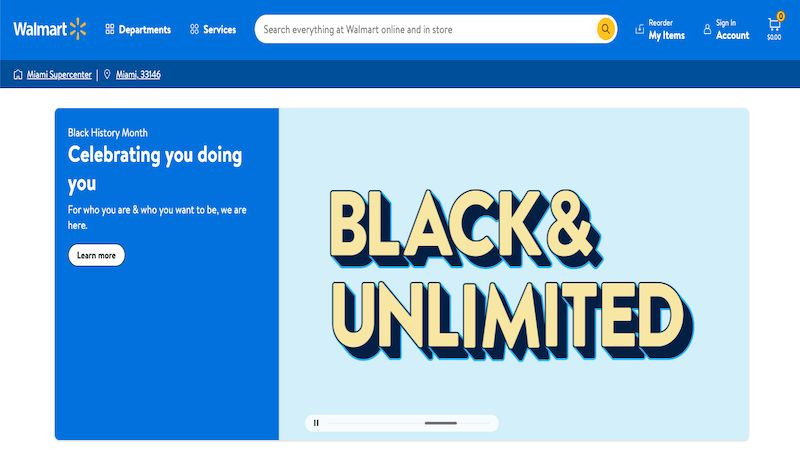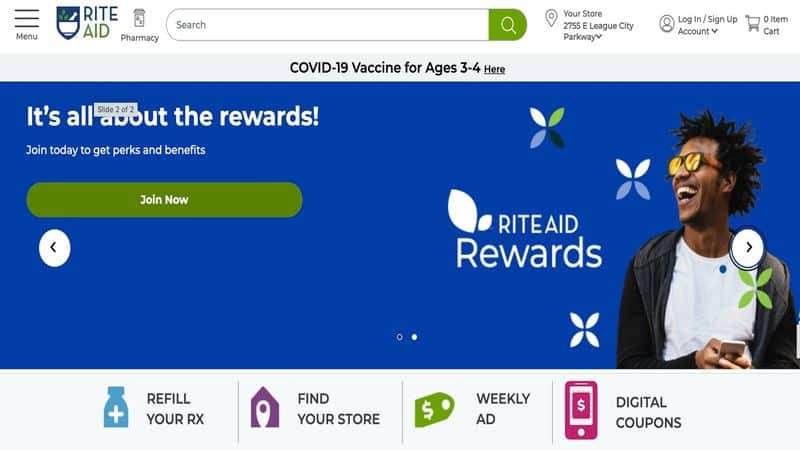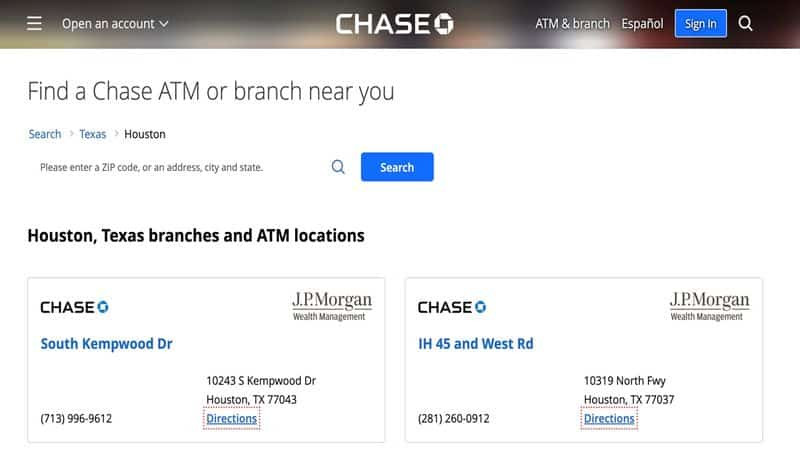Looking for a convenient way to send money? Does Dollar General sell money orders? Unfortunately, no, Dollar General doesn’t offer money orders, but don’t worry money-central.com is here to guide you through some great alternatives for secure and reliable money transfers. Let’s explore where you can find money orders and other options to manage your finances effectively, including money transfer services, bill payments and financial solutions.
1. Understanding Money Orders and Their Purpose
What is a money order, and why might you need one?
A money order is a secure payment method, similar to a check, but with a guarantee that the funds are available. Unlike personal checks, which can bounce if the account holder doesn’t have sufficient funds, money orders are prepaid, ensuring the recipient receives the money. They are particularly useful if you don’t have a bank account, or if the recipient doesn’t accept personal checks. Money orders are widely accepted for various transactions, including bill payments, rent, and online purchases. According to a 2023 report by the U.S. Postal Service, money orders provide a reliable and trackable method for individuals to send and receive funds, especially in areas where banking services are limited.
Here are some common reasons why people use money orders:
- Paying Bills: Ideal for those without checking accounts.
- Sending Gifts: A secure way to send monetary gifts.
- Online Transactions: Accepted by some online vendors who don’t take personal checks.
- Rent Payments: Landlords often prefer money orders for their reliability.
2. Why Dollar General Doesn’t Sell Money Orders
Why doesn’t Dollar General offer money orders?
While Dollar General is a convenient place for many everyday needs, it doesn’t provide money order services. This decision is likely based on several factors, including operational costs, security concerns, and the availability of alternative financial services. According to Dollar General’s official website, they focus on providing value through everyday essentials and have partnered with other providers to offer services like wire transfers as an alternative. While money orders can be beneficial, they also come with risks, such as fraud and theft, which retailers must manage.
Instead, Dollar General focuses on other financial services, such as:
- Wire Transfers: Partnering with companies like Western Union or MoneyGram.
- Bill Payments: Allowing customers to pay certain bills in-store.
- Prepaid Cards: Offering options for those without traditional bank accounts.
3. Alternatives to Money Orders at Dollar General
What are your options if you can’t get a money order at Dollar General?
Fortunately, several alternatives are available for those who need to send or receive money. These options range from other retail locations offering money orders to digital payment methods that provide convenience and security. Let’s explore some of the best alternatives:
3.1. Wire Transfers
Wire transfers are a quick and reliable way to send money electronically. Companies like Western Union and MoneyGram have partnerships with various retail locations, including some Dollar General stores, allowing you to send money domestically and internationally.
- Convenience: Available at many locations, including some Dollar General stores.
- Speed: Transfers are typically processed within minutes.
- Security: Reputable services offer secure transfer methods.
- Cost: Fees vary depending on the amount and destination.
To use a wire transfer service:
- Visit a location that offers wire transfer services.
- Provide the recipient’s name, address, and bank details (if applicable).
- Pay the transfer amount plus any fees.
- Receive a confirmation number to share with the recipient.
3.2. Prepaid Debit Cards
Prepaid debit cards are another alternative to money orders. These cards can be loaded with funds and used for purchases online or in-store, as well as for paying bills.
- Accessibility: Easy to obtain and reload at various retail locations.
- Flexibility: Can be used anywhere debit cards are accepted.
- Budgeting: Helps control spending by limiting the amount available.
- Fees: May include activation, monthly, and transaction fees.
To use a prepaid debit card:
- Purchase a prepaid debit card from a retail location.
- Load funds onto the card with cash or a debit card.
- Use the card to make purchases or pay bills online or in-store.
- Reload the card as needed.
3.3. Online Payment Platforms
Online payment platforms like PayPal, Venmo, and Zelle offer a convenient way to send and receive money electronically. These platforms are particularly useful for sending money to friends and family.
- Convenience: Send and receive money from your computer or mobile device.
- Speed: Transfers are typically processed within minutes.
- Security: Reputable platforms offer secure transfer methods.
- Fees: May include transaction fees, especially for business transactions.
To use an online payment platform:
- Create an account with the platform.
- Link your bank account or debit card to your account.
- Enter the recipient’s email address or phone number.
- Enter the amount you want to send.
- Confirm the transaction.
3.4. Money Order Retailers
Many retail locations offer money orders as a service. These include:
- Walmart: Known for its low fees on money orders.
- 7-Eleven: Convenient for quick transactions.
- CVS Pharmacy: Widely available across the U.S.
- Kroger: Offered at various grocery store locations.
- United States Postal Service (USPS): A reliable option with set fees.
4. Detailed Look at Money Order Providers
Where can you reliably purchase money orders?
4.1. Walmart
 Walmart home page
Walmart home page
Walmart is a popular choice for purchasing money orders due to its widespread availability and low fees. With over 4,700 locations in the U.S., you’re likely to find a Walmart near you.
- Fee: Maximum fee of $1, but exact fees vary by location.
- Limit: $1,000 maximum per money order.
- Provider: MoneyGram.
Note that you can also cash a money order at Walmart, but only if the money order was originally purchased at a Walmart location. According to a 2024 report by the National Retail Federation, Walmart is one of the most frequently visited stores for financial services like money orders and wire transfers.
4.2. 7-Eleven
7-Eleven convenience stores have nearly 8,500 locations in the U.S., making them a convenient option for purchasing money orders. However, prices can vary by location.
- Fee: 1-3% of the total amount, with a $0.65 minimum fee.
- Limit: $500 maximum per money order.
- Provider: MoneyGram or Western Union, depending on the store location.
It’s important to note that you cannot cash a money order at 7-Eleven locations.
4.3. CVS Pharmacy
CVS Pharmacy has over 9,800 locations in the U.S., offering easy access to money order services.
- Fee: $1.25.
- Limit: $500 maximum per money order.
- Provider: MoneyGram.
You can easily find a CVS location near you by visiting their website.
4.4. Publix
Publix operates over 1,200 grocery stores in the Southeastern U.S.
- Fee: $0.99.
- Limit: Not listed.
- Provider: Western Union.
It’s worth noting that Publix does not cash money orders.
4.5. Meijer
 Meijer home page
Meijer home page
Meijer supermarkets have roughly 240 locations in the U.S., primarily in Michigan, Illinois, Indiana, and Ohio.
- Fee: $0.65.
- Limit: $500 maximum per money order.
- Provider: Western Union.
Meijer does not cash money orders at any of its locations.
4.6. Kroger
The Kroger chain has over 2,700 locations in the United States, operating under various brand names like Dillon’s, Fry’s, King Soopers, Smith’s, and Fred Meyer stores.
- Fee: $0.69, but fees vary by subsidiary and location.
- Limit: $1,000 or $500, depending on the location.
- Provider: Western Union.
Some locations and subsidiaries may cash money orders, while others do not, so check with a location near you for more information.
4.7. United States Postal Service (USPS)
Your local U.S. post office also sells money orders. With over 30,800 retail locations in the United States, finding a USPS location is usually easy.
- Fee: $1.30 per money order up to $500, $1.75 for over $500.
- Limit: $1,000.
- Provider: USPS uses its own money-order brand.
You can also cash a money order at the post office, but check with your local branch for specific rules, regulations, and fees. According to a 2022 report by the USPS, money orders are a popular service for those who prefer traditional payment methods or do not have access to banking services.
4.8. Western Union
Western Union has over 500,000 agents worldwide. You can get a money order from any Western Union agent that carries them.
- Fee: Varies by location.
- Limit: $1,000.
- Provider: Western Union.
Note that Western Union may allow you to return your money order if you have the original money order or the purchaser’s receipt, and the money order has not been cashed.
4.9. MoneyGram
MoneyGram has thousands of locations throughout the U.S.
- Fee: Varies.
- Limit: $1,000.
- Provider: MoneyGram.
The larger the amount of your money order, the more you can expect your fee to be. MoneyGram is a reputable company that provides money orders for large retailers such as Walmart.
4.10. Rite-Aid
 Rite-Aid home
Rite-Aid home
Rite-Aid is a pharmacy that has been in business since 1962, with nearly 2,500 locations in the U.S.
- Fee: Varies.
- Limit: $1,000.
- Provider: Western Union.
Check individual Rite-Aid locations for hours, availability, fees, and more.
4.11. Local Grocery Stores
Many medium-sized chain grocery stores sell money orders, including:
- Fred Meyer’s
- Fry’s
- King Soopers
- Hy-Vee
- Cub Foods
Fees and the monetary limit on each money order will vary depending on the size of the order. Call your local grocery store to learn more about money order services, fees, limits, and providers.
4.12. Local Banks and Credit Unions
 Chase bank local
Chase bank local
If you have an account at a local bank or credit union, you can purchase or cash a money order there. Some banks will even sell or cash money orders for non-customers, but be prepared to pay a higher fee. Every bank has different regulations about buying and selling money orders and accompanying fees. Check with local banks near you for more information.
5. Comparing Costs of Money Orders
How much will a money order cost you?
Money order fees vary depending on the provider and the amount of the money order. Here’s a general comparison:
| Company | Cost (Starting) |
|---|---|
| Walmart | $1.00 |
| 7-Eleven | $1.50 |
| CVS Pharmacy | $1.25 |
| Publix | $0.89 |
| Meijer | $0.65 |
| Kroger | $0.69 |
| USPS | $1.30 |
| Western Union | $2.99 |
| MoneyGram | $0.70 |
| Rite-Aid | $0.99 |
| Local Grocery Store | $1.00 |
| Local Bank/Credit Union | $0.35 |
6. Important Considerations When Using Money Orders
What should you keep in mind when using money orders?
- Security: Keep your money order receipt in a safe place.
- Verification: If you receive a money order, verify its authenticity with the issuing company.
- Limits: Be aware of the maximum amount you can send with a money order.
- Fees: Compare fees from different providers to get the best deal.
7. Protecting Yourself from Money Order Scams
How can you avoid money order scams?
Money order scams are a real concern, so it’s essential to be vigilant. Here are some tips to protect yourself:
- Verify the Source: Always verify the legitimacy of the money order with the issuing company before accepting it.
- Inspect for Alterations: Check for any signs of tampering or alterations on the money order.
- Be Wary of Overpayment: If someone sends you a money order for more than the agreed-upon amount and asks you to return the difference, it’s likely a scam.
- Never Send Money to Strangers: Avoid sending money orders to people you don’t know or trust.
According to the Federal Trade Commission (FTC), money order scams often involve fake job offers, online sales, and rental agreements. Always exercise caution and do your due diligence before accepting or sending money orders.
8. Frequently Asked Questions (FAQs) About Money Orders
Have more questions about money orders? We have answers.
8.1. What if I Lose a Money Order?
Most places that sell money orders have a system to replace a lost money order. However, you’ll probably be charged a fee to get a replacement. For specific information, you’ll need to check with individual locations about replacing lost money orders.
8.2. How Do I Know if a Money Order I Receive is Legitimate?
As with real cash or checks, people design fake money orders. If you ever doubt the legitimacy of a money order you receive, call the issuing company for verification.
Also, check for telltale signs of a counterfeit money order, such as:
- The amount area looks as if it’s been altered.
- The dollar amount is too high, over $1,000.
- The money order doesn’t contain a watermark; Western Union, MoneyGram, and USPS all put watermarks on their money orders.
If the money order someone is trying to give you doesn’t look right, refuse to accept it and ask for cash instead.
8.3. How Do I Pay for a Money Order?
Most places that sell money orders only accept cash or debit cards to pay for them. Check with the store near you that sells money orders to get specific information on what payment types they accept.
8.4. Can I Track a Money Order?
Yes, most money order providers offer tracking services. You’ll typically need the money order number and your receipt to track the status of your money order online or by phone.
8.5. What Happens if the Recipient Doesn’t Cash the Money Order?
If the recipient doesn’t cash the money order, the funds will eventually be returned to you. However, this process can take several months. Contact the money order provider for specific details on their refund policy.
8.6. Are Money Orders Insured?
Money orders are generally not insured by the FDIC, but they are considered a safe payment method because the funds are prepaid. The issuing company guarantees the availability of the funds.
8.7. Can I Cancel a Money Order?
Yes, you can typically cancel a money order, but you’ll need to provide proof of purchase and may be subject to a cancellation fee. Contact the money order provider for specific instructions.
8.8. What Information Do I Need to Fill Out a Money Order?
When filling out a money order, you’ll typically need to provide the following information:
- Payee: The name of the person or company you’re paying.
- Payer: Your name and address.
- Amount: The amount of the money order.
- Address: The address of the payee.
8.9. Can I Send a Money Order Internationally?
Yes, some money order providers, like Western Union and MoneyGram, offer international money order services. However, fees and exchange rates may apply.
8.10. What Are the Advantages of Using Money Orders?
Money orders offer several advantages, including:
- Security: They are a secure payment method.
- Accessibility: They are available at many locations.
- Trackability: They can be tracked to ensure delivery.
- No Bank Account Required: You don’t need a bank account to purchase a money order.
9. Conclusion: Making Informed Financial Choices
While Dollar General doesn’t sell money orders, understanding the available alternatives empowers you to make informed financial choices. Whether you opt for wire transfers, prepaid debit cards, online payment platforms, or money orders from other retailers, knowing your options ensures you can manage your money effectively and securely.
For more detailed financial guidance, visit money-central.com. Our comprehensive resources, easy-to-understand articles, and expert advice will help you navigate the complexities of personal finance. Take control of your financial future today with money-central.com – your trusted partner for financial success.
Address: 44 West Fourth Street, New York, NY 10012, United States. Phone: +1 (212) 998-0000.
